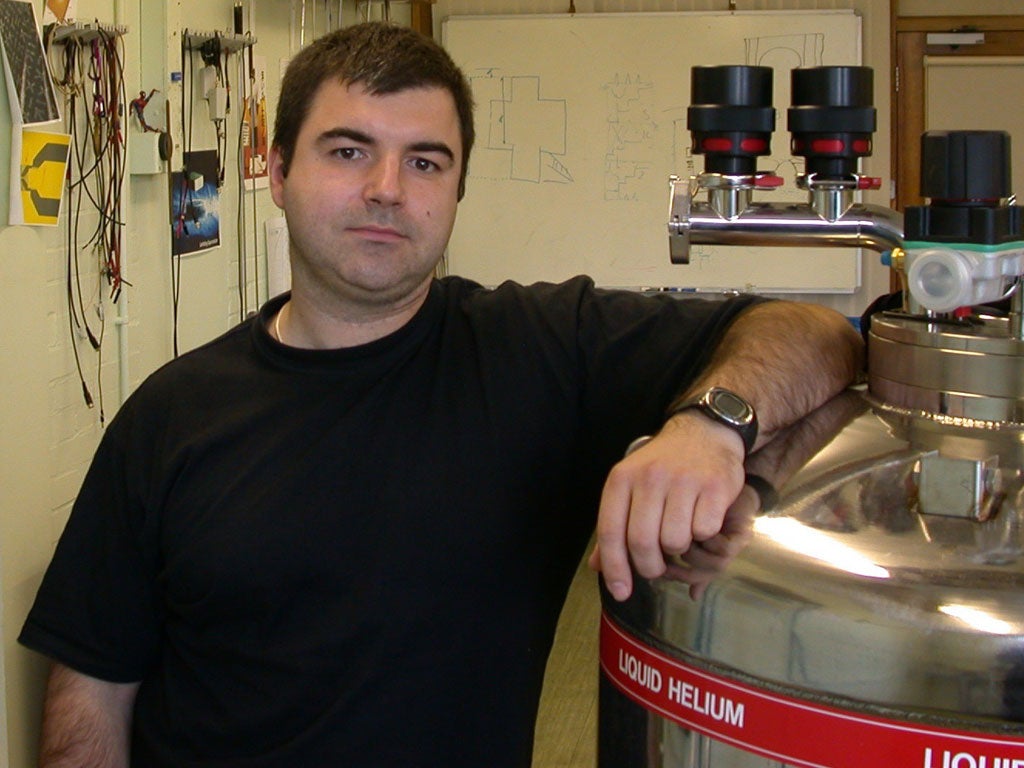Dash for cash is stopping science in its tracks, claims Nobel winner

Scientific breakthroughs are becoming more difficult in Britain because of the pressure on scientists to demonstrate that their research has practical benefits before it is funded, Kostya Novoselov told The Independent.
The Nobel prize-winner, who was feted by Chancellor George Osborne for his pioneering work on graphene, said scientists increasingly have to show that their research has commercial potential.
He added that the “blue skies” nature of scientific research is critical to industrial innovation but is being stifled by academic funding bodies looking for short-term spin-offs. “We are gradually losing the blue-skies element [of scientific research]. It is very important because we lose this opportunity for breakthroughs,” he said. “You start to see more and more forms that ask you about the benefit to society from your research, and so on. It’s very hard to determine the benefit to society because science deals with something that is unknown.
“Another problem is that scientists begin to feel ashamed of negative results, which wasn’t the case a few years ago. Negative results are often as important as the positive results. The current system doesn’t tolerate failure.
“The situation is getting worse. The pot of money allocated to science is not increasing fast enough, or is even under the threat of being shrunk. But you are also seeing more and more strings attached to this money, which they shouldn’t be.”
Alongside his compatriot and colleague Professor Andre Geim, Professor Novoselov has been hailed by the Chancellor as the sort of scientist who should be encouraged to work in Britain. The Government has approved the funding of a new £61m National Graphene Institute in Manchester that is aimed at exploiting the commercial potential of their pioneering work.
Professor Novoselov, who is closely involved with the new institute, had insisted the money for it should not be diverted from Government funds for basic research. “Scientists should be given freedom of their research, and once the new breakthroughs are identified, they should be given additional funding to advance it into technology,” he said.
“Graphene is a good example, because the money given to the graphene institute is not part of the scientific budget. It’s coming from different sources” he said.
However, both Geim and Novoselov have been critical of the amount of money that the Government allocates to science. Professor Geim was one of the 53 signatories of a letter to the Daily Telegraph recently calling on the Government to boost the £4.6bn science budget rather than oversee a “policy of managed decline”.
Professor Novoselov said that Britain’s major competitors in south-east Asia, for instance, are spending about 3 per cent of GDP on science while the private and public sector together in Britain spend about 1.7 per cent on scientific research.
Even though the Government has “ring-fenced” the science budget, Professor Novoselov said a major boost to funding is essential if Britain is to stay a scientific powerhouse.
“It’s like a condemned man who is going to be shot and has been given another day to live – is that a good deal? Of course it’s a good deal with the background that everything else is being shrunk, but it is much better if this person gets pardoned completely,” he said. “If not in science, where do you see the economic growth of this country coming from?”
Subscribe to Independent Premium to bookmark this article
Want to bookmark your favourite articles and stories to read or reference later? Start your Independent Premium subscription today.

Join our commenting forum
Join thought-provoking conversations, follow other Independent readers and see their replies